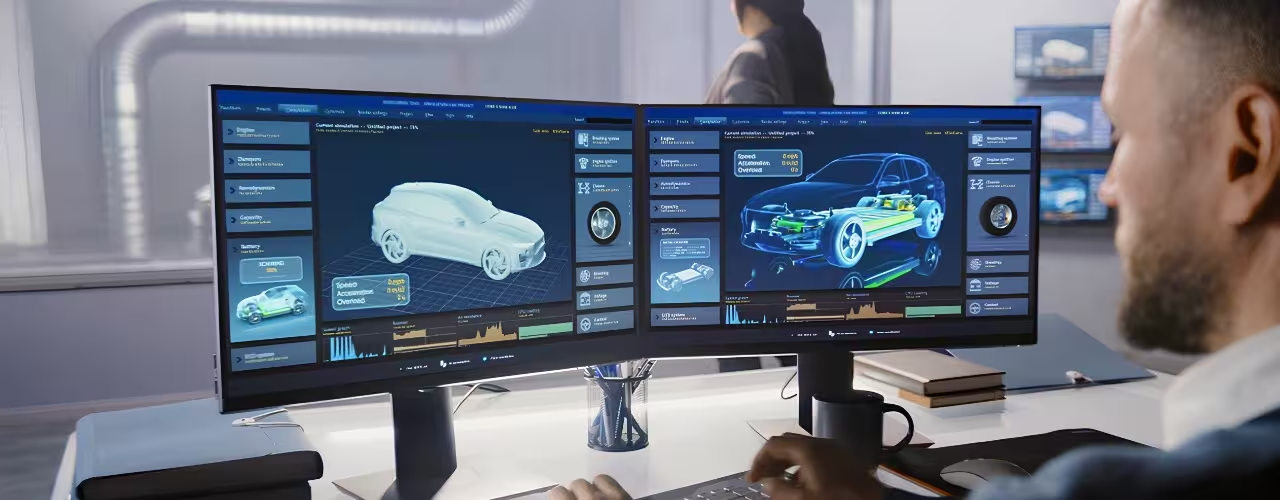Virtual Validation of Instrument Panel Design for Regulatory Compliance and Tooling Readiness

About the Client
A Tier-1 automotive interior systems supplier based in Europe, supporting global OEMs. The client required virtual validation of a new instrument panel (IP) design to meet global regulatory standards before tooling release.
The Challenge
The client was working under a tight schedule and needed to complete virtual validation before committing to tooling. The validation scope included compliance with FMVSS, ECE, and OEM-specific requirements. The challenge also involved managing rapidly evolving CAD maturity levels while ensuring accurate and timely analysis delivery.
Key challenges included:
- Compressed timeline between CAD freeze and tooling kick-off
- Need for multiple types of simulations across functional domains
- Limited availability of validated material properties for analysis
- Coordination across design, analysis, and regulatory compliance teams
The Solution
We executed a complete virtual validation workflow aligned with international regulations and the client’s internal development milestones.
Key solution components included:
- Prioritization of CAD maturity stages for meshing activities
- Creation of high-fidelity finite element (FE) models
-
Execution of the following simulations:
- Static stiffness
- Quality feel evaluation
- Head impact compliance
- Modal and thermal performance
- Passenger Air Bag (PAB) deployment load checks
- Support in sourcing validated material cards by coordinating with authorized testing labs
- Compliance review and documentation aligned with ECE and FMVSS standards
The Impact
The virtual validation program enabled the client to move confidently into tooling with a high level of design confidence and regulatory alignment:
- On-time validation delivery supporting critical launch timelines
- Full coverage of regulatory simulations without the need for physical rework
- Minimized risk and retooling costs through preemptive validation
- Improved model accuracy via sourcing of validated material data
- Strengthened OEM readiness with comprehensive compliance documentation
To know more, please reach us at contactus@cstech.ai or click here.